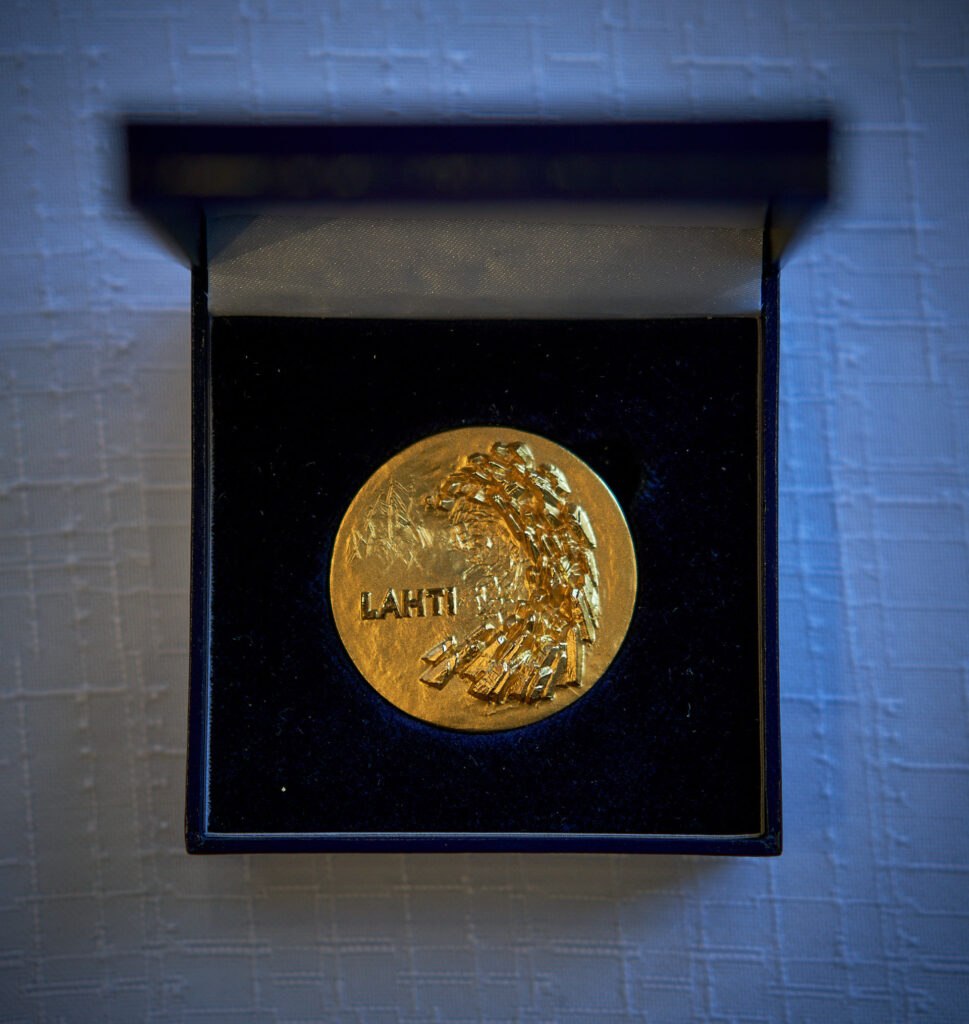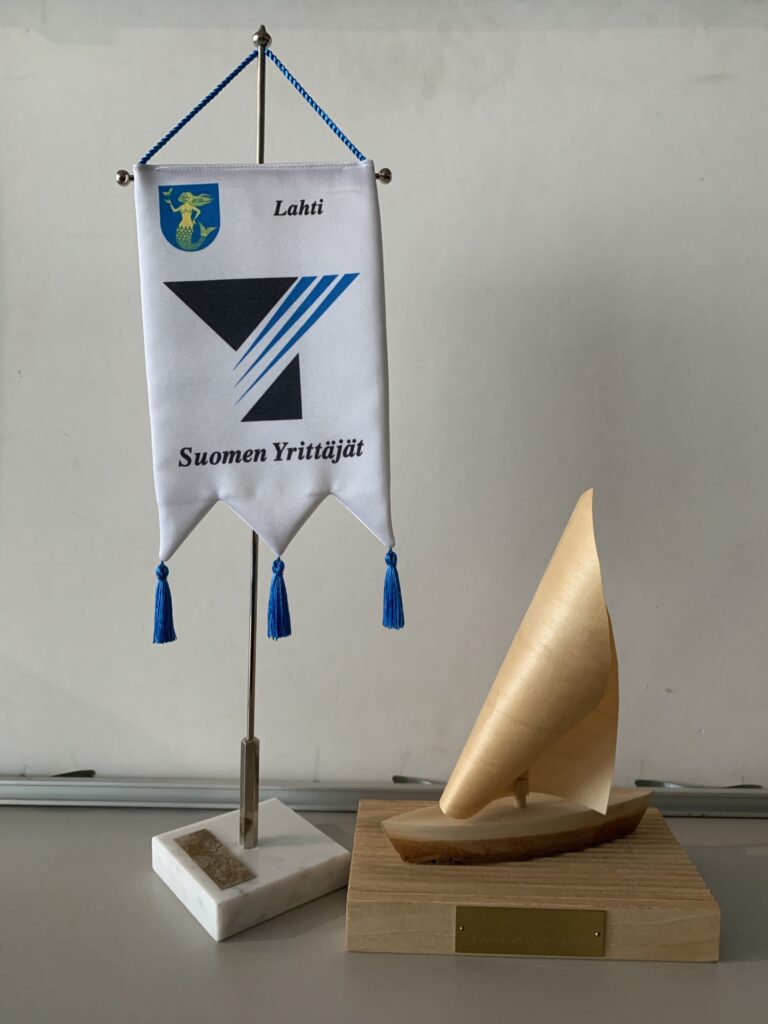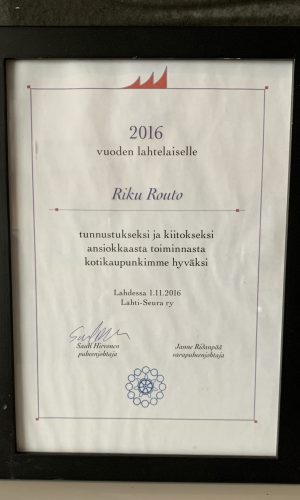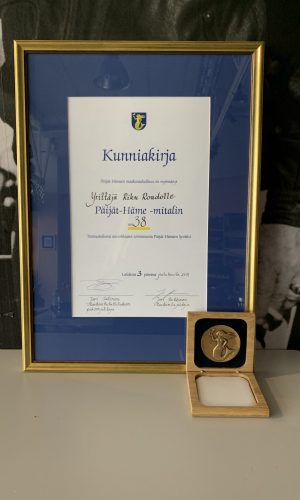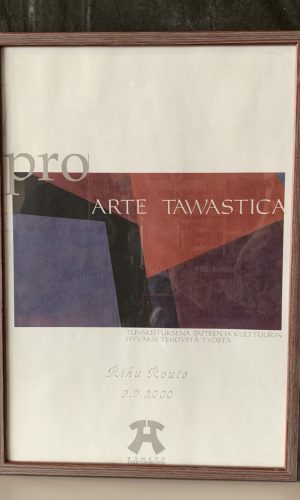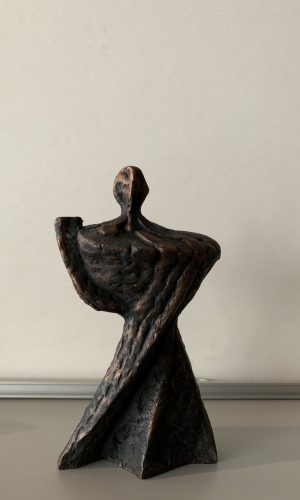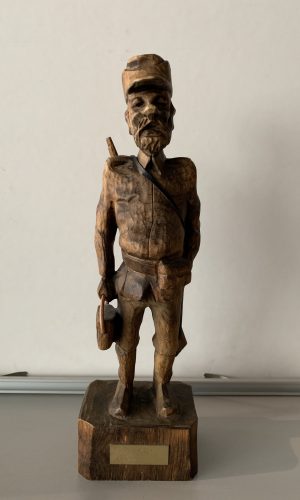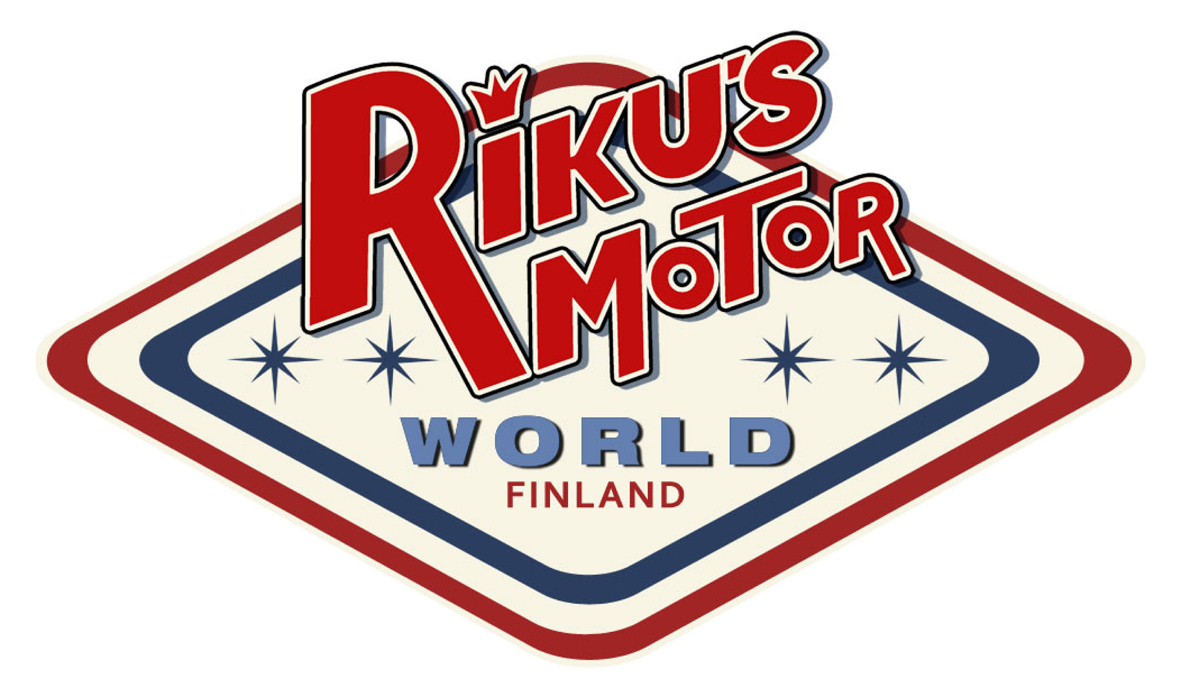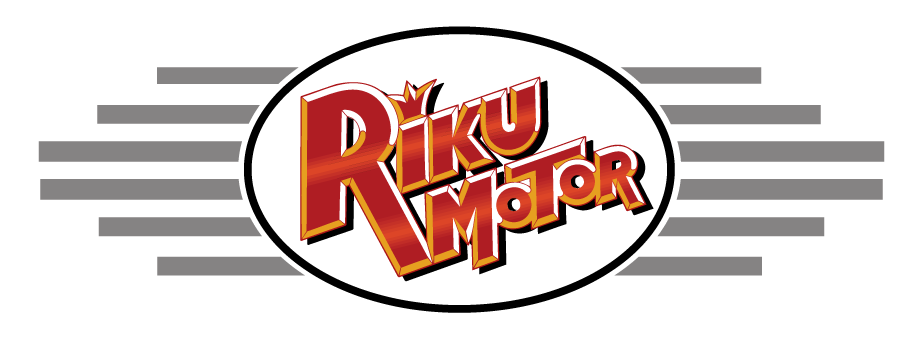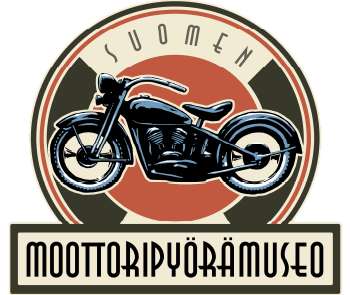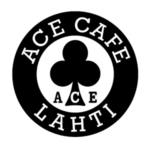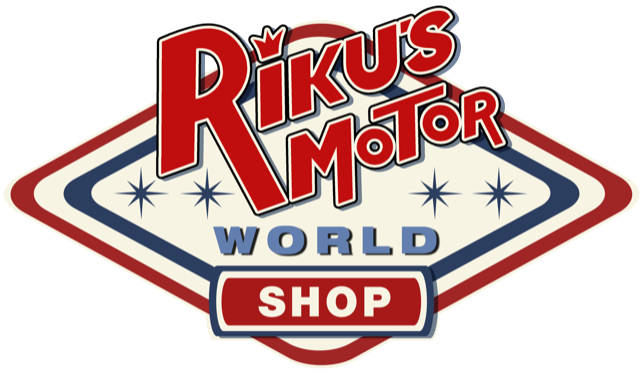RIKU ROUTO
Hello there! I’m Riku.
I was born in Lahti, the year was 1957.
I am in the happy position of having a spark from my 10 years of motocross hobby and contacts to become an entrepreneur in my dream industry.
For more than 40 years, being an entrepreneur has given me important lessons and experience, not just from the motorcycle trade, but from organizing events of all sizes, such as music and entertainment.
I have been married to my spouse Maarit since 1990 and we have been blessed with two children, Jori (born 1991), and Teresa (born 1994).
In addition to my own companies Ace Cafe Lahti, the Finnish Motorcycle Museum and Riku Motor, I have various interesting projects going on as we speak.
I am relentless in nature, I do not know the word “Fail”. I have developed an extensive network of friends that covers the whole world through my motorcycle hobby. So do not hesitate to contact us if you have any interesting idea or project in mind.
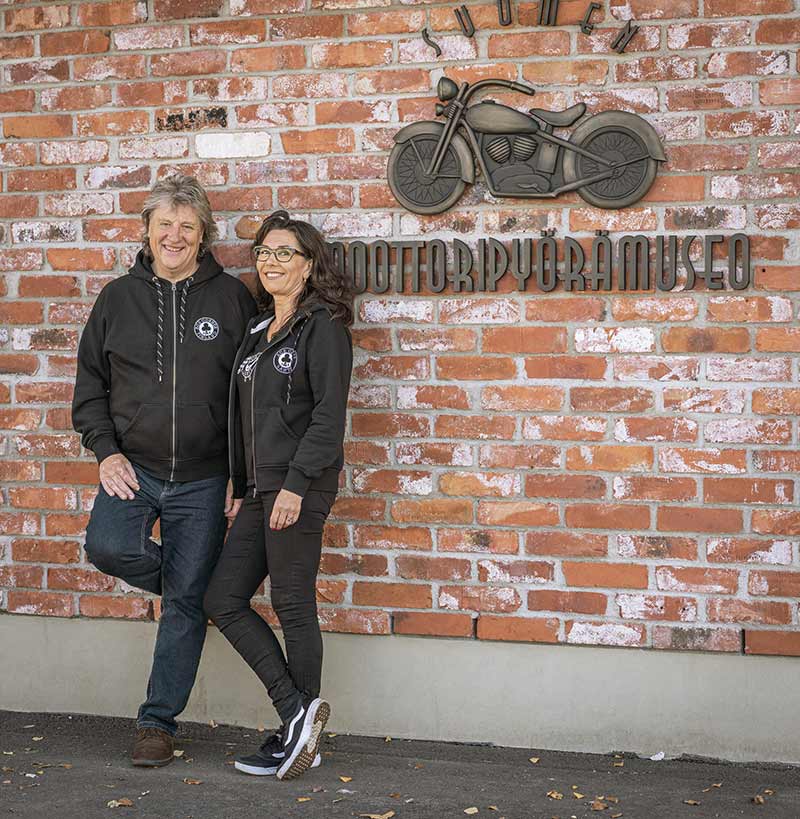
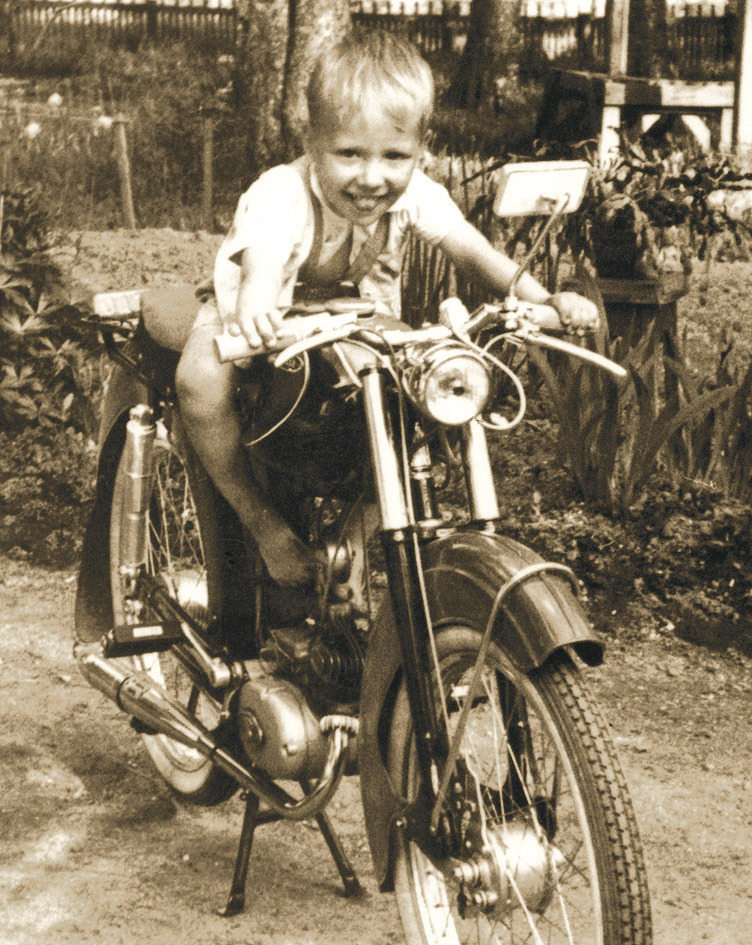
Initial enthusiasm for motorcycles and motocross
9-year-old Riku bought his first motorcycle with his own permits. Riku had gathered the money for the bike by collecting copper cartridges from the Hennala shooting range and selling the cartridges to a junk shop. The bike was a 200-cubic Triumph Tiger Cub. Riku thought what his parents would say, so he went to ask his father:
“What if I bought a motorcycle”? Dad said, “You can buy it with your own money.” So Riku replied, “Let’s go see, it’s behind that shed.”
As the age increased, interest in motorcycles grew and in schooling waned, so much so that at the age of 15 Riku left school to work in construction site to buy a motocross bike and embark on a modest racing career, that gave many memories and friendships that developed over time.
Riku was a team driver with his friend Riikanen Jukka, and Martti Pesonen was also involved, whose success inspired the young boys.
Riku hitch-hiked to Imatran Ajot in 1972. Imatran Ajot were once one of the largest festivals in Finland. Riku was at the forefront of the podium cheering when Jarno was crowned the champion.
From a bicycle mechanic to a motorcycle shop salesman
Riku left the army in 1978 and was supposed to run a bicycle repair shop. The owner of the workshop in Paavola was about to retire, and Riku had tentatively agreed to buy the premises and continue to operate the workshop, as he had been a bicycle mechanic in the army.
However, Fate decided to intervene in Riku’s promising career as a bicycle mechanic.
Sakke Järvenpää and Mato Valtonen came and said that they were setting up a motorcycle shop in Lahti. At the same time, Riku was studying mathematics and his mother tongue at a civic college and was going to a technical school, and he got to the construction line in Kotka, but Sakke and Mato attracted him to the store as a storefront.
“The shop was called Mr. Cee Cee, Mr. Cube. The shop was launched in November 1980, it was a pretty colorful time. Sleepy Sleepers were at the top of their career at the time and I got to watch that life very closely ”, says Riku.
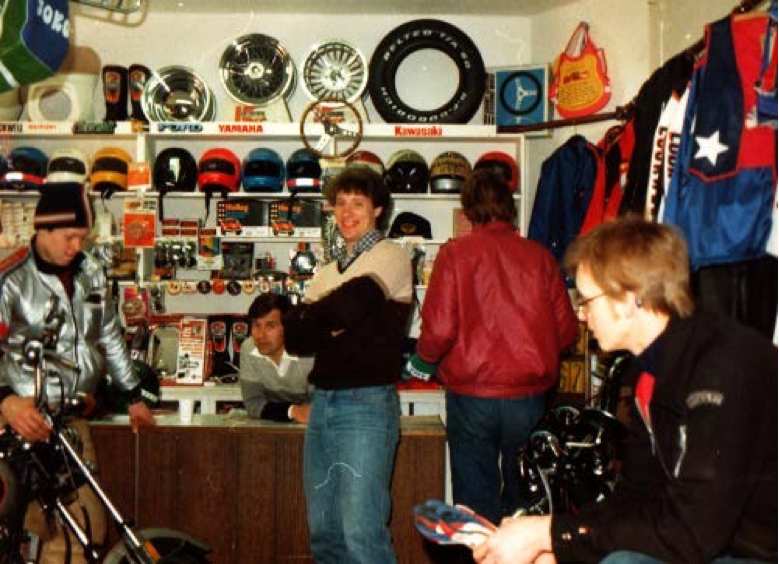
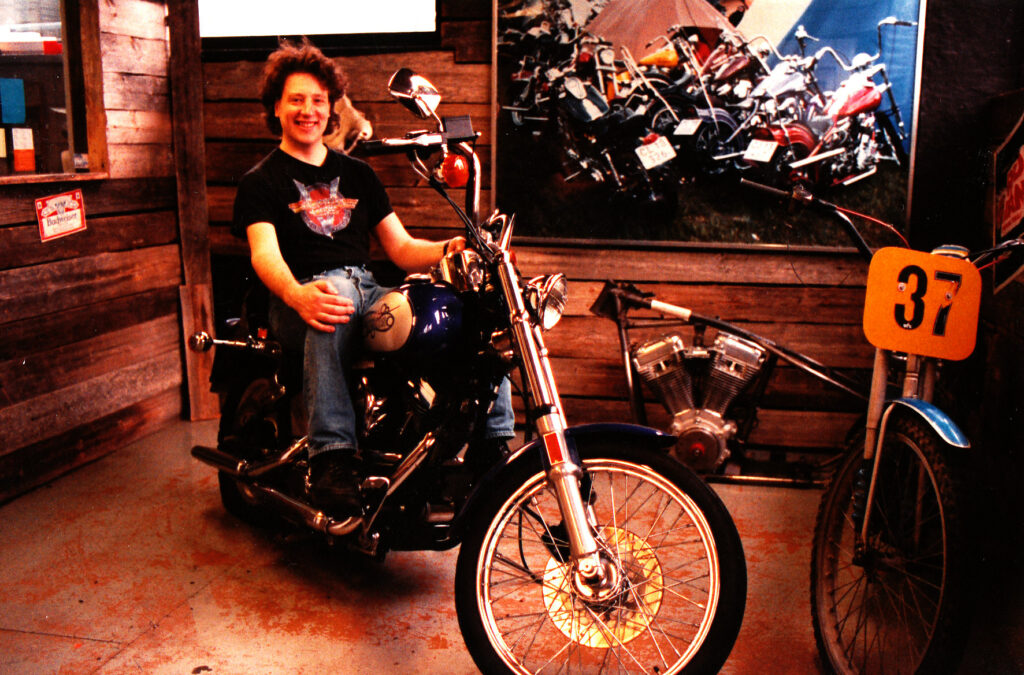
A dream of one’s own shop
It was a well known shop and there were people from all over Finland.
“But it was such a circus.”
The idea of one’s own motorcycle shop, which had burned in Riku’s mind, finally caught fire in 1984, when Riku and Heikkilä acquired a warehouse on the ground floor of an old factory on Kisällinkatu, with Riku owning a larger part and Tane a slightly smaller part.
Tane was one of the first in Finland to build Harley-Davidsons in Custom Bike and sold them on the other side. The name of Riku’s company was first planned to be Banzai Bike, among other things, but in the end, a more pronounced name, Riku Motor, was chosen.
Riku Motor was registered as a company in the Trade Register in 1985. Used motorcycles were sold there, and at that time Riku bought large batches of equipment.
The store specialized in motocross and enduro, and Riku Motor was one of Finland’s largest dealers in Kawasaki cross-country bikes. In addition, there were other enduro brands on sale, such as KTM.
“The trade was pretty small at the time, compared to the good times of the late 90’s, but a small group was working and making bread.”
In addition to trading, maintenance operations have been involved from the beginning, and Pete Urpalainen started maintenance at the beginning. Riku brought old Harley-Davidsons from the US to sell at Kisällinkatu shop, and when people heard when the bikes came, it caused quite an upheaval.
“The gang really fought in the yard to get a bike. There were no Harley-Davidsons in Finland at that time, so there really was a seller’s market.”
The event made from scrap
There was a back room in Kisällinkatu, which was called “rear hell”, because it was so full of bits, pieces and rubbish that the door didn’t even close properly.
Rompetori (literally translating into scrap market), originated in that back room in 1985 when the scrap was taken to the yard for sale. These swap meets have since been held on a slightly different scale almost every year. The first veteran motorcycle shows were also held on Kisällinkatu at the same time.
Grandma’s panties as an exchange currency and a slithering roommate
The first local radio, Rytmiradio, started operating in Lahti in 1987. Riku Motor’s first radio commercial was broadcast on the channel, beginning with music and commercial speech, and at the end it said that “Grandma’s old panties can be used as currency”.
The ad inevitably attracted attention, and Riku got a living tiger python in exchange of a motorcycle. Python was called Jaska and he lived with Riku.
At that time, Riku had just started dating Maarit (now his wife), who, due to a slithering resident, did not enjoy staying in Riku’s apartment, so Riku sold it to the pet store, where Jaska lived for some time before she died of the flu.
Work practice and Moomin lemonade showers
Riku Motor often had schoolchildren in his shop for attending their work practice programs. One of these boys was Joni Broman. Joni became Riku’s credit seller in the early 1990s and ended up being part of the core gang for 20 years.
During the Kisällinkatu office in the 90’s, Riku started organizing motocross schools for children. Raimo Ekman, the author of the dissertation on performance motivation and risk management in motocross athletes, was the head teacher of the school.
The Motocross School was held in Lahti on the Kukonkoivu and Pipo lines for about ten years. “All the children had been given medals, moomin lemonades and trophies for the top three, and on top of the podium, they sprayed each other’s necks with that moomin lemonade, it was pretty great.”
Some of the top drivers of the time and other well-known people were recruited for the price-giving ceremony. Juha Salminen, Joël Smets, Janne Ahonen and Ismo Vehkonen, among others, gave away the awards.
When Ismo was about 16 years old, he was the first person to be sponsored by Riku Motor. A written agreement was made about the sponsorship and Ismo promoted Riku Motor in his racing shirt, among other things. In Riku’s opinion, Ismo Vehkonen is one of the most talented drivers in Finland.
Due to Ismo’s bad luck, he was injured many times, but in the best years he drove to 1st and 2nd place in the SM 500 Series.
Riku recalls that Ismo sent him a postcard from every race. “That winter, when Ismo was at his best, in Italy he drove to the championship series and came in second, losing by one point to Eric Geboers and interrupting one set if he had driven to the finish, he would have been the champion and in my mind it was almost the same as the world championship.”
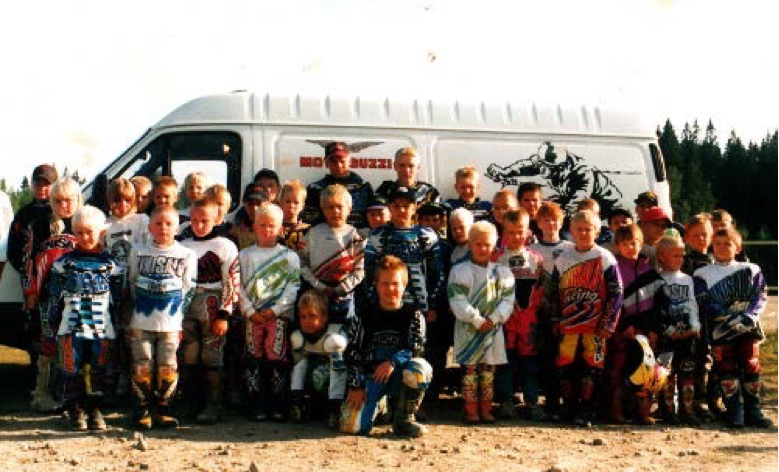
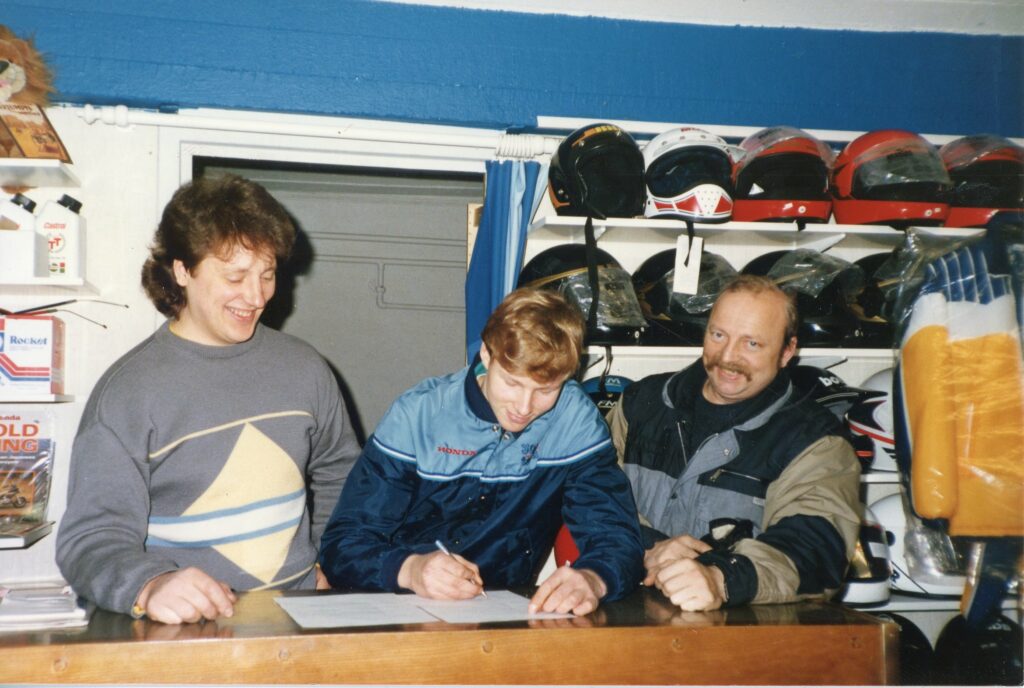
One’s trash is the recession killer of another
During the recession in 1993, the big motocross manufacturer Tackla went bankrupt. Before that, the company managed to sell a really large amount of driving equipment in Italy in, but when the recipient heard that the company had gone bankrupt, they did not redeem the goods.
The value of the entire equipment pile was approximately FIM 600,000, and when the administrator brought the products back to Finland, he had to pay the previously reimbursed 18% VAT and storage costs from Italy. Less than a year later, the liquidator finally got the goods back to Finland. “Then they stand there in Tattarisuo in such a semi-warm warehouse”. The stock contained about 460 pants, a shirt, and all the best sizes, and they were no more than a couple of years old.
Riku went to see the “big pile of equipment” that came to Finland, when the liquidator asked for the entire pile FIM 250,000, “What was such a wet dream”. Riku had to say he didn’t have enough money for it. Time passed, and the trustee contacted Riku and announced that he would sell the products for FIM 100,000. Riku didn’t have that amount to invest, but he went to look at the products again and found that water had gotten inside the product bags. “Then I called the trustee to get FIM 15,000, saying that all of it was about to catch mold soon and they’re going to landfill.” After the call, it took a quarter when Riku got the call back to get the products for FIM 20,000, and with that agreement, Riku bought everything. “It was the time of the Helsinki Motorcycle Fair and a kiosk was set up there, so I immediately sold some of the stuff for about 50,000 marks at the fair, and it was only a fraction of it.” A couple of batches of Riku got sold in Italy and that was one way Riku Motor survived the current recession.
Motorcyclists stick together
Riku’s dream was to have a motorcycle fair in Lahti. Riku organized the first small motorcycle exhibition in 1994 in Lahti Shopping Center Trio. The exhibition was an immediate success and it was decided to be held in a little larger the following year: the exhibition was moved to Lahti Sports Hall. There, importers and trade fair stands came along and the event began to grow.
The fair was held at the sports hall for two years, but the space was too small. For the fourth time, Lahti’s local fair, named Prätkä (slang word for motorcycle), was held at the Lahti Exhibition Hall. For a long time, the fair was the only local exhibition in Finland, and enthusiastic about its success, small exhibitions were held in other places as well.
Riku organized his exhibition in the Lahti exhibition halls for many years, until some disagreements came to Riku and the then CEO of the Lahti Exhibition when planning the 2004 fair. The Lahti Fair had decided to organize the fair itself and announced that Riku’s help was no longer needed.
Riku did not stay seated, but contacted the importers he knew and explained the situation. Despite its attempt, Lahti Fair did not organize a motorcycle fair, because “Importers told them that they won’t come there, since the fair was Riku’s thing. They all stood behind me”, Riku recalls. They didn’t end up arranging the event after all, but the motorists were not left without their yearly happening since Riku began to develop an event to be held in Riku Motor’s premises and in the yard of the gas station.
The Prätkä 2004 event with the subtitle World’s Smallest MP Exhibition was born.
The World’s Smallest became an annual event that lasted until 2010. The event featured performers and program numbers every year, such as Jope Ruonansuu and Halavatun Papat in the first year, Los Bastardos Finlandeses in 2007, Crazy World and stunt show in 2008 and Muska in 2009. The exhibitions always included a section of old bikes.
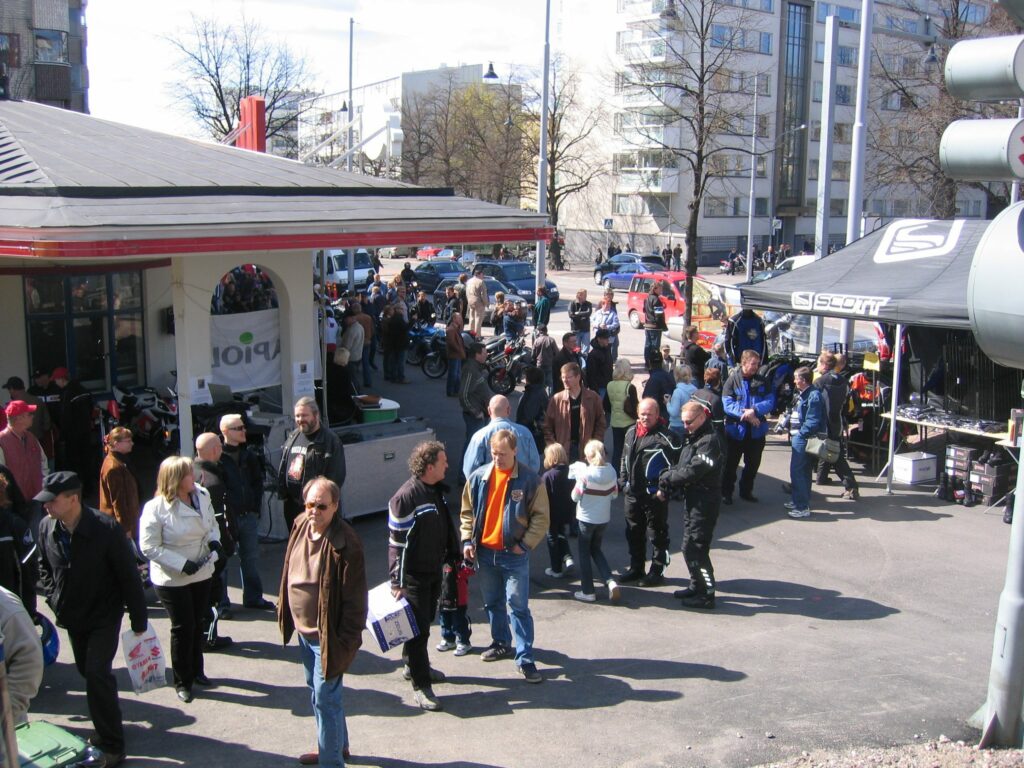
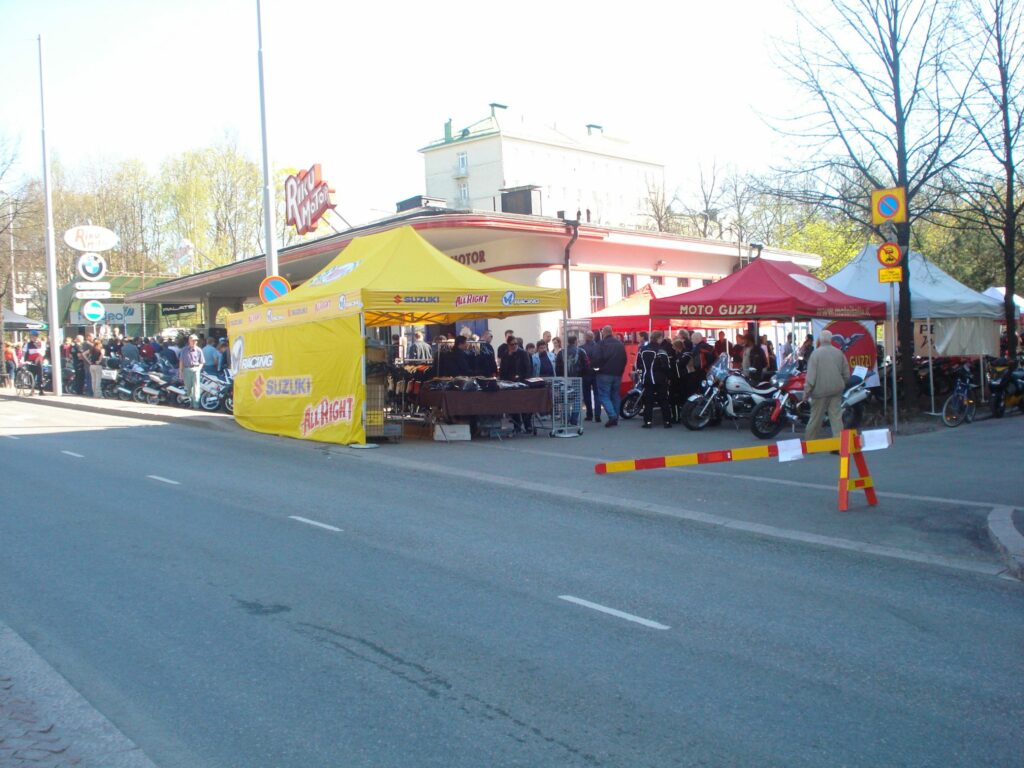
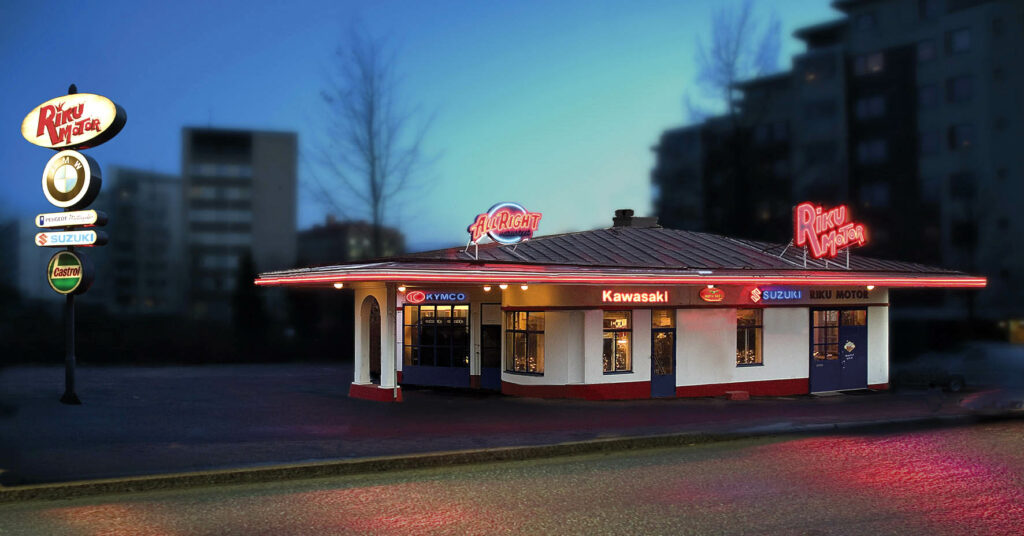
Gas station at Vesijärvenkatu 7
A service station representing functionalism style is located at Vesijärvenkatu 7 in Lahti. The gas station has been in Riku’s dreams since the 1970s. “I’ve told acquaintances and friends that sometimes I have a motorcycle dealership there, even though I didn’t know I’d even start any business.”
Uusi Lahti magazine had an advertisement about the gas station being rented, in which Riku visited a couple of times with his credit employee Joni. The application was filed and finally there was an announcement that Riku had by far the best idea and with small improvements the place was now Riku Motors’ and Riku’s.
Riku’s long-term dream came true and he signed a 10-year lease agreement with the City of Lahti to use the Vesijärvenkatu service station as Riku Motor’s business premises. After the lease expired, Riku managed to byt the gas station from the city and it is still owned by Riku.
Renovation, opening and Maarit as the company’s pillar
At that time, the deepest recession was being experienced and the motorcycle trade was almost at a standstill. In 1995, only 760 motorcycles were sold in Finland. Riku Motor ran out of money, and no one really remembers where the money came from, but somehow the money was scraped for a massive renovation that the gas station desperately needed.
“It was in such bad shape that you couldn’t even be in there.” The renovation was huge, but on May 11, 1995, the opening of the new Riku Motor store was celebrated at Vesijärvenkatu 7. Importers had been invited to the place, and Maarit remembers that Janne Ahonen was also present as a young boy. For Riku, family is important and has played a big role in the company’s growth. For him, Riku Motor’s rise began when his wife Maarit came to work at the Vesijärvenkatu service station. “I have my feet firmly in the air and Maarit is in the ground to the ankles, so it will be good.”
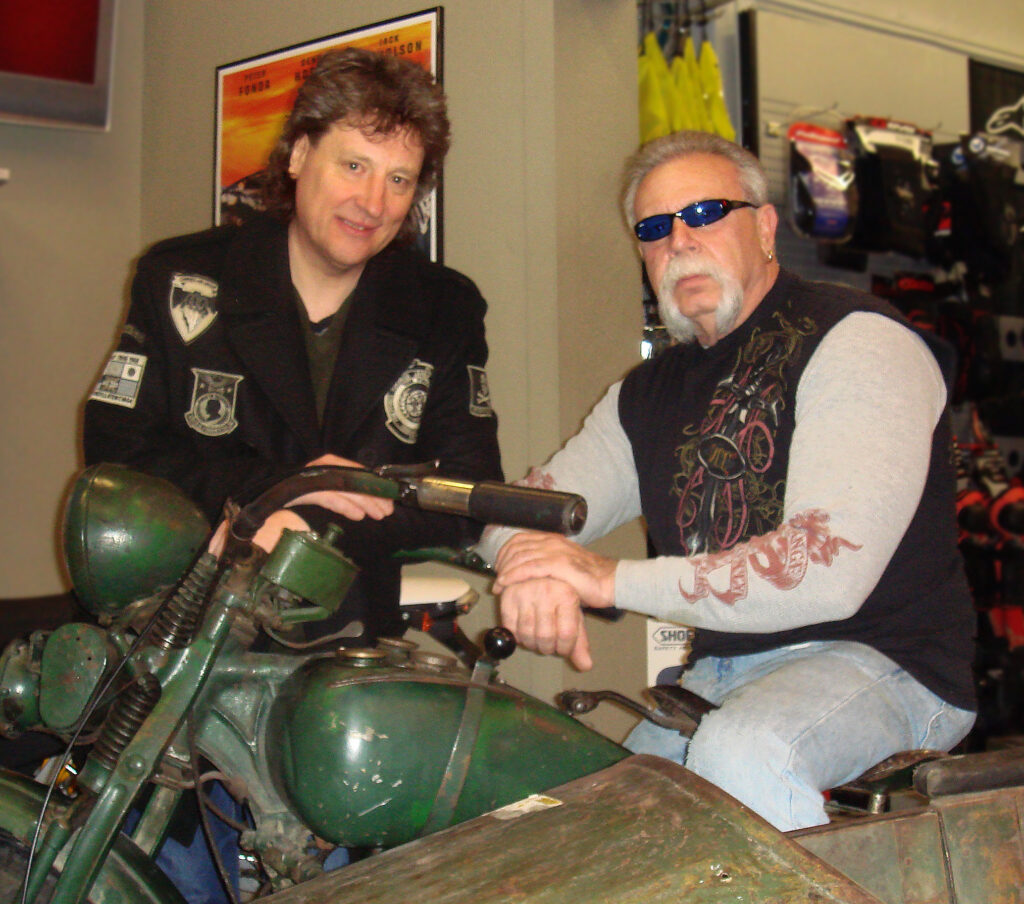
Paul Teutul to Finland
In 2008, Suomen Messut asked Riku to help develop the annual motorcycle fair in Helsinki. The meeting was attended by importers and the only trader was Riku. “I threw in the idea that what if I got an American motorcycle builder here.” Riku meant the American Chopper TV series Paul Teutul for the motorcycle builder. The sales manager, Antti Rapo, began to organize the matter and it materialized.
The Discovery / TLS channel performed an episode of American Chopper Finland called Unique Machine. In Finland, the episode was aired on Nelonen on October 19, 2009. During the episode, the protagonists Paul Teutul and Steve Moreau first went to Lahti with Riku on the shore of the Mukkula, riding an ATV and visiting Riku Motor and eating at the small lunch bar Jännä-42 Jussi on Vesijärvenkatu. Teutul wanted to experience where ordinary people eat ordinary food.
After visiting Lahti, they went to the Helsinki Motorcycle Fair, among other things, and they also got to visit Helsinki trying out ice swimming and the sauna.
To Moisionkatu building with ladders
Workshop and warehouse space was sought for Riku Motor, and Riku drove around Lahti in search of a suitable place. In November 1999, Riku drove past an old building on Moisionkatu. The building was surrounded by a fence, trees grew in front and the windows were broken. “Then I picked up ladders from home and climbed over the fence, went through the rotten wooden door and thought: Wow.”
Riku drove home to get a video camera and went back to take footage from the place. “I explained on that video that it’s going to bethis and that, and in here I’m gonna put this and this.”
At that point, Riku didn’t even know who owned the building. He used a plot map to find out that it was owned by two older people who sold the building for a “relatively nice price”. The building was an old supplier’s warehouse. The structures from 1928 were good and the roof had never leaked, so Riku saw potential for the place.
Renovation work began immediately and a workshop was opened in May 2000. On the upper floor of the building, the Routo couple built a home for themselves, which they were able to move to in 2001.
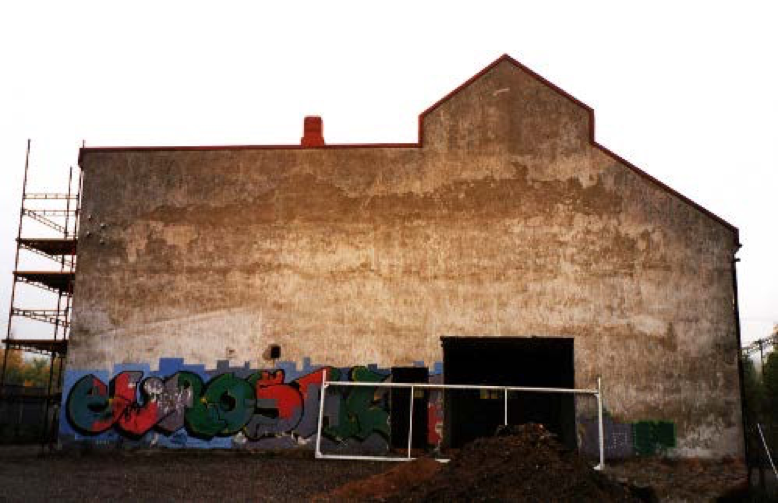
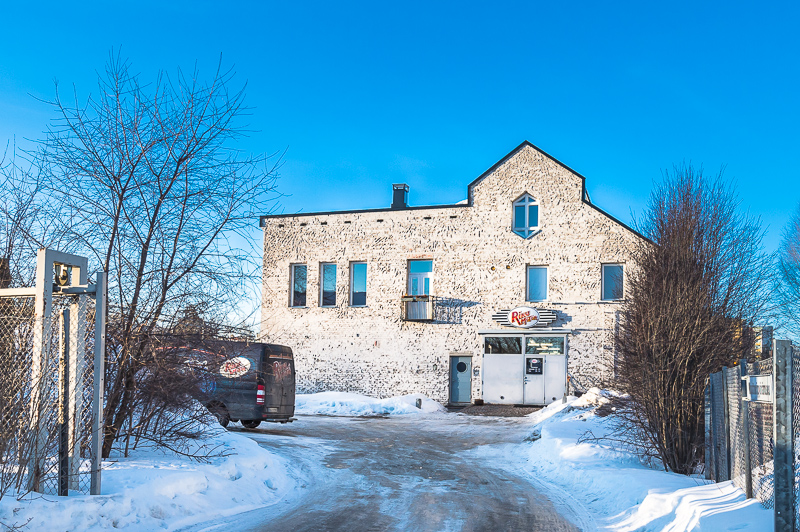
Originality, courage and creativity
In 2007, Riku Motor’s Garage Shop was opened on the premises of Moisionkatu, where mainly supplies and equipment were sold at affordable prices, but of course also bikes. The only employee was Harri Saarikangas, who worked for Riku until 2011. In 2008, Renor Oy wanted Riku Motor’s services into its premises on Askonkatu, and so Renor built “topnotch premises” for Riku Motor’s maintenance, to where the service moved to in the autumn of 2008.
Motorcycle maintenance is challenging because winters are usually quiet, but now things were good.
“We have so good premises there that we will be able to put a lot of wheels for winter stowage, so that the boys have a work for the whole winter ”. The facilities at the funk service station were too small and all operations of Riku Motor were moved to Moisionkatu on March 19, 2010.
Other motorcycle shops in Lahti had gone bankrupt, but their courage, originality and creativity paid off.
2008 Riku didn’t feel satisfied with just the motorcycle trade and at the same time the construction of the museum was underway, so then I made a conscious decision to start running Riku Motor’s business down slowly, even though the recession of the time brought its own difficulties to running the company down. However, Routo succeeded and the most difficult task was to say goodbye to longtime coworker and friend Joni Broman. Riku Motor is still operating, but it does not have its own store.
60 red bricks and a dream of owning a museum
Riku has been collecting old stuff for ages, such as photos, books, cover films and of course, motorcycles. The dream of founding a museum had been stuck in Riku’s mind for more than a decade. Riku fell in love with the old wood-drying shop building built in 1959 in the Lahti Niemi harbor. He bought the building from the city of Lahti. In addition, he was allowed to lease the plots around the building on a long-term contract.
That’s where the gathering of partners to help with the constructions began. To gather sponsors, 60 numbered red bricks were made with the museum’s bronze logo was affixed and the bricks were signed by the museum’s godfather, Giacomo Agostini. By selling them, Riku received much needed funds to build the museum.
An extension was built, following the original style of the building. Red bricks for the walls Riku acquired from the closed Lahti Mallasjuoma factory property that produced malt drinks, the bricks were made by Virenoja. The extension was built ecologically using modern technologies.
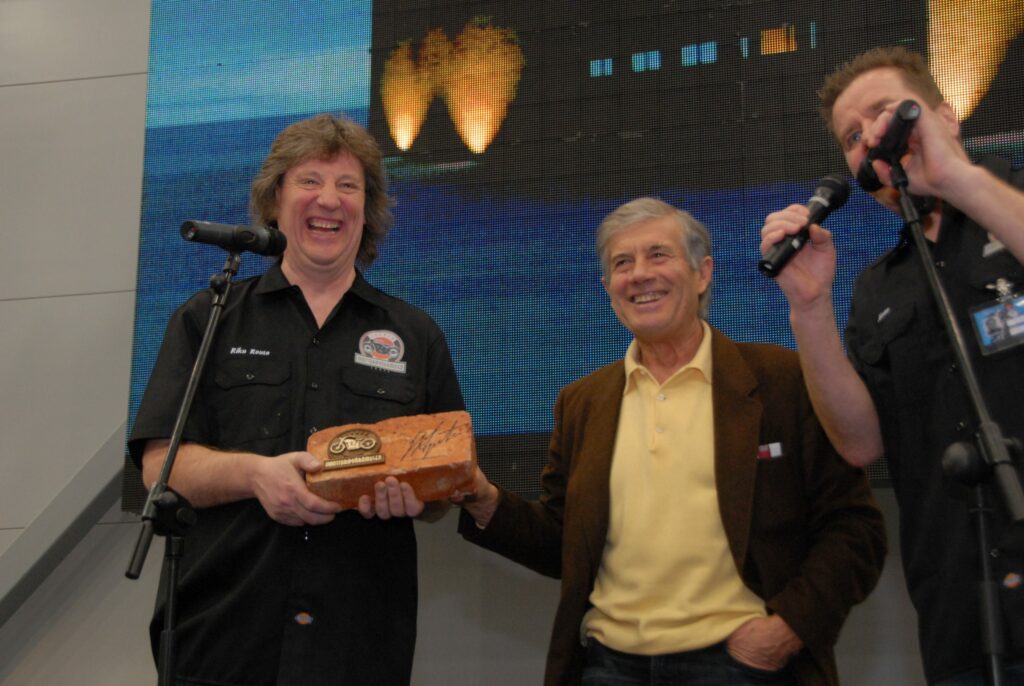
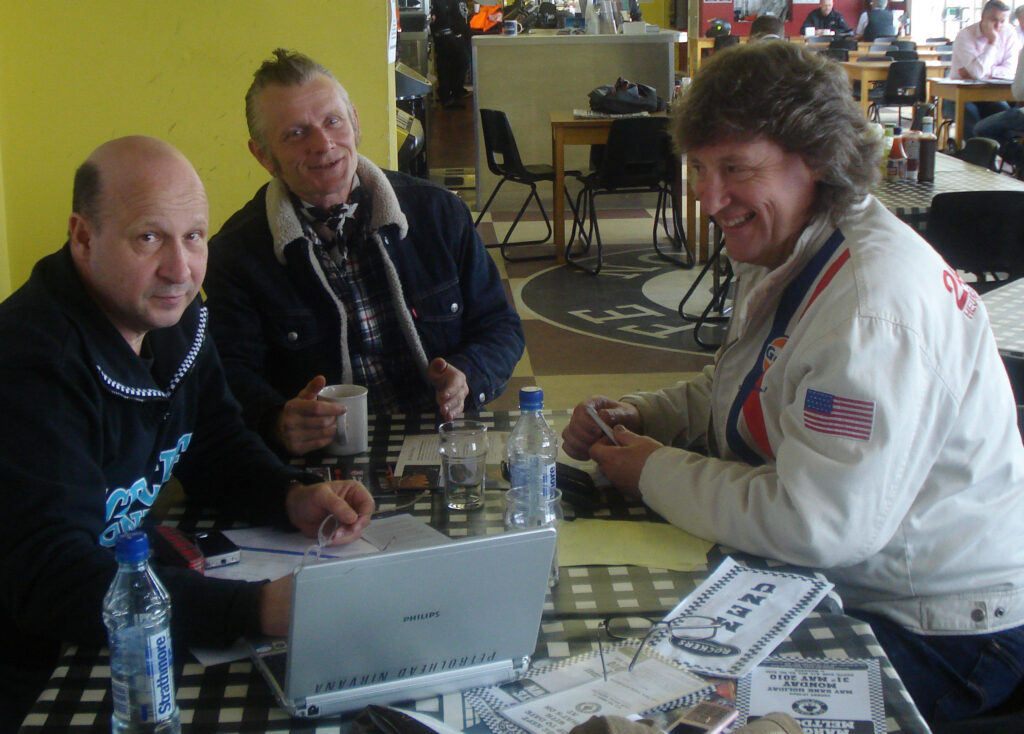
Bringing Ace Cafe to Finland and beyond
At the beginning of designing the museum, Riku thought it would be a sweet thing if Ace Cafe could be brought to Finland. The dream was to have the museum and the Ace Cafe under one roof so that their transactions could support each other.
First, Riku tried to get in touch with the owners of Ace Cafe through his acquaintance David Fiddaman. Fiddaman is David’s factory owner, but he couldn’t help Riku. So Riku called directly to Ace Cafe London, made an appointment and went to London with Maarit to meet the owners Mark Wilsmore and George Tsuchnikas.
After the negotiations, the details of the matter were being smoothed out for a while, but things started to roll to the way Riku wanted, and Ace Corner Finland was born. It became the first café outside the UK to belong to the Ace Cafe family. The agreement was signed on February 3, 2011, when Mark Wilsmore arrived at the Ace Corner exhibition stand at the Helsinki Motorcycle Fair. In addition to Finnish rights, Riku also acquired the rights to establish Ace Cafe in Russia.
As the franchise business went incredibly well, Ace Cafe London owners Mark Wilsmore and George Tschnikas decided to take the Ace Cafe brand more widely to the world, giving birth to Ace Cafe Orlando, Barcelona, Lucerne, Bejing and Kuala Lumpur. The doors of Finnish Motorcycle Museum and Ace Corner Finland opened to the public for the first time on 28 May 2011. The museum’s exhibitions change every year. At the Motorcycle Fair 2020, Acen’s new name “Ace Cafe Lahti” was announced to match other brand-restaurant cafés.
Acknowledgements
Over the years, Riku has been involved in different projects and organized all kinds of events. He has not only done business with motorcycles but has also been involved in developing his hometown Lahti. Acknowledgements have also come his way through his work.
Listing:
- Golden Lahti Medal 2021 (for the precious work done for the city of Lahti)
- The resident of the year Lahti 2016
- Pro Arte awards (for rescuing the Vesijärvenkatu service station and the Moisionkatu warehouse building)
- Päijät-Häme medal 2013 (for meritorous work done in favor of Päijät-Häme area)
- Lahti Entrepreneurs Award for Enterprise of the Year 2010
- A positive Lahti resident awarded by the Lahti Youth Chamber of Commerce and Positiivarit Ky in 2007
- APOLI Recognition Award 2011 (for nurturing the built environment)
